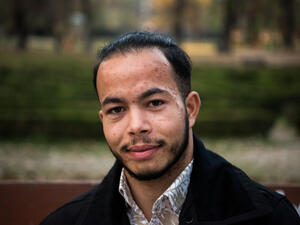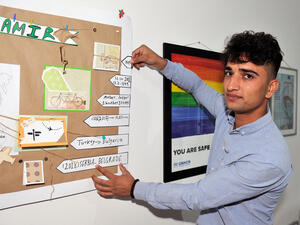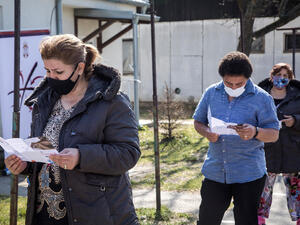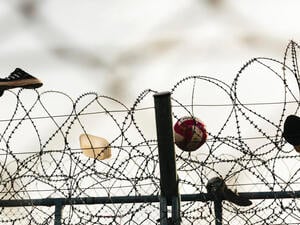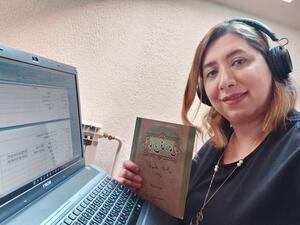Kosovo Crisis Update
Kosovo Crisis Update
Albania
A total of just 807 refugees arrived on Wednesday at the Morini crossing, some families on their tractors, and some on foot. The refugees arriving on foot included 200-250 ex-detainees, released from the prison at Smrekovnica in Kosovska Mitrovica municipality. So far, more than 2,000 prisoners have arrived in Albania after being freed from Kosovo jails, apparently to make room for new detainees, according to previous arrivals.
During the day on Wednesday there was fighting and intense NATO air activity in the border area, prompting UNHCR and other agencies to reduce staff there. During the day, several shells fell in Albanian villages in the Krume district, reportedly killing at least two villagers and injuring others.
The fighting in the border region made the need to relocate refugees from tented camps in the Kukes region more acute. The relocation operation continued Wednesday, with 2,279 being moved south, including 300 transported on NATO trucks to a refugee camp at Fier.
FYR of Macedonia
Around 300 Kosovar refugees arrived on Thursday in the FYR of Macedonia, mainly through the Jazince border crossing. Just 61 persons crossed at Blace, and all were men who had been released from the prison at Lipljan, where they had been detained since 24 April.
Looking emaciated and exhausted, like the former prisoners who have been arriving in Albania over the past few days, the men said they had been arrested and accused of being terrorists. After their release yesterday, Serbian authorities took them by bus to the Blace border crossing.
More than 30,000 refugees had entered the FYR of Macedonia over the past five days, saying renewed ethnic cleansing was taking place in Kosovo. The refugees who arrived on Tuesday said thousands were still queuing on the Serbian side of the border, but on Wednesday the area was empty, police said. There was no immediate explanation available.
Few details are available yet on Wednesday's arrivals through Jazince, but there were new accounts from the group of 1,000 refugees who came across the area on Monday, 25 May. They had arrived at the border on a bus from Pristina and a convoy of 30 tractor-wagons from villages in the Kacanik and Gnjilane municipalities.
Some said they saw villages burning when they left and that young men were taken out from the convoy by Serb forces. These men, hands on their heads, were reportedly marched off to an unknown destination.
Also on Wednesday, 230 refugees who had arrived on Tuesday at Blace were transported by bus to camps in Korce, Albania. They were volunteers who came forward in response to UNHCR's campaign to identify new arrivals willing to move to Albania, in order to relieve pressure on the congested camps in the FYR of Macedonia.
Because of the recent influx, areas reserved for educational activities have had to be allocated to new arrivals at Stenkovec and Cegrane. UNICEF has expressed concern about this development, which slows the establishment of stability in the daily life of camp children. UNHCR shares this concern and is looking at the possibility of transferring the school tents to an area located in between the two Stenkovec sites.
Meanwhile, health teams have begun a vaccination campaign against measles among refugees hosted by local villagers. Around 5,000 children have been vaccinated during the first week of the campaign led by WHO and UNICEF. The Ministry of Health says 90 percent of Macedonian children have been immunized, but a much lower number of Kosovar youngsters have been vaccinated.
Republic of Montenegro
Only eight arrivals from Kosovo were reported on Wednesday 26 May as tension continues along the border between Montenegro and Kosovo, following the takeover of the area by the Yugoslav army two weeks ago.
Updated figures for 25 May indicate around 600 people arrived in Montenegro from Kosovo. The number includes the previously reported group of about 490 refugees, of whom 70 men had initially been separated from their women and children and sent to the military barracks at Andrijevica.
Intervention by UNHCR and the head of Montenegro's special police prevented the army from sending the men back to Kosovo. Police have provided UNHCR with a list of the men who were reportedly beaten upon their arrest by the army for questioning in connection with activities of the Kosovo Liberation Army.
UNHCR-IOM Humanitarian Evacuation Programme
Humanitarian evacuations from the FYR of Macedonia have reached 65,749 with the departure on Wednesday of 2,174 refugees to Austria, Canada, Denmark, Germany, Israel, Italy, the Netherlands, Norway, Spain, Sweden, the United Kingdom and the United States.
Under the programme, UNHCR has received offers for 137,000 places from 40 countries.



